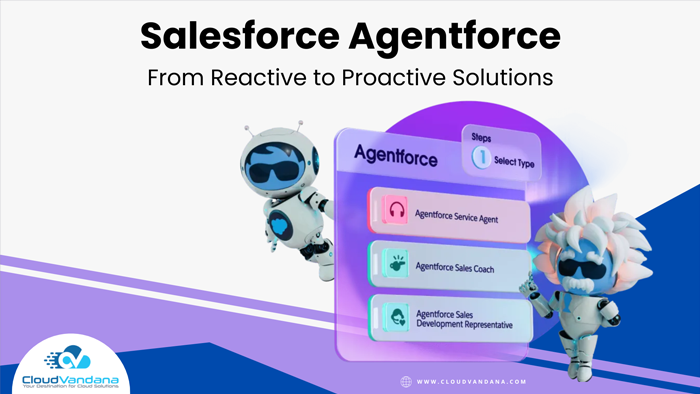The emphasis on skill based hiring has become paramount in the ever-evolving software development landscape. As the demand for unique, high-performing applications escalates, the correlation between skill-based hiring and project success is more apparent than ever. This article delves into the undeniable impact of skill-centric recruitment on the triumph of software development endeavors.
Amidst the digital renaissance, companies are swiftly embracing the significance of assembling a team with the right qualifications and the precise talents essential for the task at hand. By examining the infusion of niche expertise into software development teams, we uncover how skill-based hiring augments innovation, accelerates project timelines and fortifies triumph for tech ventures.
As we unravel the intrinsic connection between skill-based hiring and software development success, we shed light on the strategies, outcomes, and industry best practices that underpin this synergy, offering a strategic vantage point for both recruiters and tech enthusiasts alike.
Understanding skill-based hiring in software development
Skill-based hiring in software development entails the meticulous selection of individuals based on their unique abilities, expertise, and experience rather than just traditional qualifications. This approach acknowledges the multifaceted nature of software development, where specialized skills and creative problem-solving are crucial for success. Organizations can foster an environment of innovation, collaboration, and efficiency by assembling a team with a diverse range of talents.
The emphasis on skill-based hiring also aligns with the evolving dynamics of the tech industry, where adaptability, creativity, and domain-specific knowledge are paramount. Recruiting individuals with niche expertise in artificial intelligence, cybersecurity, and cloud computing can significantly enhance a software development team’s ability to tackle complex challenges and deliver exceptional solutions.
Furthermore, skill-based hiring encourages a holistic evaluation of candidates, encompassing not only technical proficiencies but also soft skills such as communication, leadership, and adaptability. This comprehensive approach to talent acquisition lays the foundation for cohesive, high-performing teams that are equipped to navigate the intricacies of modern software development projects.
The impact of skill-based hiring on project success
Infusing these hiring practices into software development teams profoundly impacts project success. Organizations can effectively mitigate skill gaps by recruiting individuals with specialized competencies that align with project requirements and ensure that every team member contributes meaningfully to the project’s objectives.
Moreover, skill-based hiring accelerates the development process by leveraging the collective expertise of team members, leading to streamlined workflows and efficient problem-solving. This, in turn, translates to shortened project timelines, allowing organizations to deliver high-quality software solutions within competitive timeframes.
In addition, the strategic deployment of skill-based processes instills a culture of continuous learning and knowledge sharing within software development teams. As individuals with diverse skill sets collaborate and exchange insights, the team’s collective intelligence grows, fostering an environment conducive to innovation and sustained success.
Skill based hiring statistics in the software development industry
The adoption of skill-based hiring in the development industry is underscored by compelling statistics that highlight its impact on organizational performance and project outcomes. According to a recent survey conducted among technology companies, 83% of respondents affirmed that skill-based hiring had a positive influence on their development initiatives, leading to improved project delivery and client satisfaction.
Furthermore, data reveals that organizations that prioritize skill-based hiring are 35% more likely to complete software development projects within the stipulated timelines, demonstrating the tangible advantage of assembling teams with tailored expertise. These statistics underscore the instrumental role of skill-based hiring in shaping the trajectory of software development endeavors and driving tangible business outcomes.
The strategic implementation of skill-based hiring not only enhances project success but also cultivates a competitive edge for organizations in an increasingly dynamic and demanding market landscape.
Implementing skill-based hiring in your software development team
To effectively implement skill-based hiring in your software development team, adopting a structured and comprehensive approach to talent acquisition is imperative. This begins with thoroughly analyzing the skills and competencies required for specific projects, allowing recruiters to identify the precise expertise needed to drive success.
Furthermore, leveraging data-driven insights and predictive analytics can aid in identifying skill gaps within existing teams and formulating targeted recruitment strategies to address these gaps. By harnessing the power of technology and advanced assessment tools, organizations can ensure that their talent acquisition efforts align with the evolving demands of the software development landscape.
Additionally, fostering partnerships with educational institutions, professional associations, and industry networks can provide access to a diverse pool of talent with specialized skills, enriching the talent pipeline and enabling organizations to tap into emerging expertise that aligns with their strategic objectives.
Key skills to prioritize in software development hiring
When prioritizing skills in software development hiring, it is essential to recognize the nuanced capabilities that drive project success and innovation. While technical proficiencies in programming languages, software architecture, and quality assurance are fundamental, organizations should also prioritize skills related to emerging technologies such as machine learning, blockchain, and the Internet of Things (IoT).
Moreover, soft skills, including problem-solving, teamwork, adaptability, and effective communication, are equally crucial, as they facilitate seamless collaboration within development teams and enable individuals to navigate complex challenges with agility and resilience. By striking a balance between technical prowess and interpersonal competencies, organizations can assemble well-rounded teams capable of delivering impactful software solutions.
Furthermore, the ability to embrace continuous learning, stay abreast of industry trends, and adapt to evolving methodologies is a hallmark of exceptional software development professionals. These attributes not only contribute to individual growth but also infuse teams with a spirit of innovation and adaptability—essential qualities for sustained success in the dynamic tech landscape.
Overcoming challenges in skill-based hiring for software development
While skill-based hiring offers an array of benefits for software development teams, it is not without its challenges. One of the primary obstacles is the identification and assessment of specialized skills, particularly in rapidly evolving domains such as artificial intelligence and cybersecurity. To surmount this challenge, organizations can leverage expert panels, technical assessments, and real-world problem-solving scenarios to gauge candidates’ proficiency in niche areas.
Additionally, ensuring cultural fit and alignment with the organization’s values and vision poses a significant challenge in skill-based hiring. To address this, organizations can incorporate behavioral assessments, scenario-based interviews, and immersive experiences that provide candidates with insights into the organization’s culture and work environment, enabling both parties to make informed decisions.
Furthermore, establishing robust mentorship programs, continuous learning initiatives, and opportunities for skill enhancement can help organizations address skill gaps within existing teams, fostering an environment of growth and development that aligns with the principles of skill-based hiring.
Training and development for skill enhancement in software development teams
In tandem with skill-based hiring, investing in training and development initiatives is instrumental in fostering skill enhancement within software development teams. By providing access to specialized workshops, certification programs, and experiential learning opportunities, organizations can empower their employees to fortify their expertise in niche domains and remain at the forefront of technological advancements.
Moreover, mentorship programs and knowledge-sharing platforms serve as invaluable tools for cultivating a culture of continuous learning and skill enrichment. By fostering an environment where team members can exchange insights, seek guidance, and collaborate on skill development initiatives, organizations can nurture a community of empowered and proficient software development professionals.
Additionally, embracing a growth mindset and encouraging individuals to pursue ongoing education, research, and skill refinement enables organizations to cultivate a workforce that is agile, adaptive, and primed for innovation, aligning with the core principles of skill-based hiring.
Leveraging skill-based hiring for innovation and growth in software development
Skill-based hiring serves as a catalyst for innovation and growth in software development, propelling organizations toward the forefront of technological advancement and market leadership. By assembling teams with diverse expertise and specialized competencies, organizations can infuse their software development endeavors with a rich tapestry of perspectives, insights, and inventive solutions.
Furthermore, skill-based hiring fosters an environment where talent is recognized, nurtured, and empowered to contribute meaningfully to the realization of organizational objectives. This not only fuels individual growth and fulfillment but also cultivates a culture of excellence, creativity, and resilience within software development teams.
Moreover, the strategic alignment of skill-based hiring with organizational goals and market demands enables companies to proactively respond to industry shifts, emerging technologies, and evolving client expectations, positioning them as agile and forward-thinking entities in the competitive software development landscape.
Conclusion: Embracing skill-based hiring for software development excellence
In conclusion, the impact of skill-based hiring on software development success is unequivocal. By prioritizing niche expertise, fostering a culture of continuous learning, and embracing a holistic approach to talent acquisition, organizations can position themselves for sustained innovation, accelerated project timelines, and exceptional client satisfaction.










